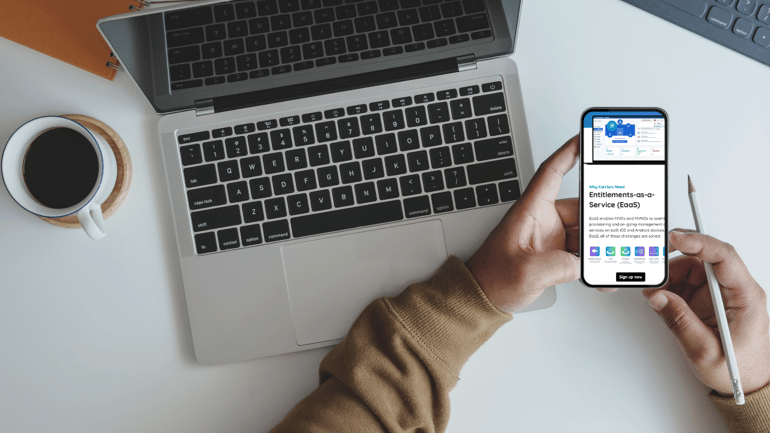Ultimate Digital Experience: The Role of Entitlement Servers for MNOs and MVNOs

For MNOs and MVNOs all around the world, there is currently a focus on digital transformation. Remotely acquiring new customers wherever they are in the world, at their convenience, ideally through a streamlined sign-up process lasting only a minute or two.
As we're aware, eSIM technology plays a crucial role in facilitating carriers to accomplish this. However, the question arises: what is the experience like for all these newly acquired customers on your network when they begin using their favourite mobile services on their devices?
In a digitally transformed world, you’ll want your customers to have the best experiences with their devices so they remain happy customers on your network. Those carriers offering exceptional experiences will likely retain customers for a long time, while those failing to meet expectations will lose customers, with almost zero chance of winning them back.
Consider widely used mobile services such as Apple's iMessage and FaceTime, alongside functionalities like VoLTE and Wi-Fi Calling. Will these services be provisioned automatically and seamlessly? Until today, these specific services can take carriers some effort to provision. The good news is that there exists a technology proven to significantly enhance the provisioning process - this technology is known as Device Entitlements.
Fundamentally, an Entitlement Server operates between your customers' devices and your network infrastructure (OSS/BSS), efficiently coordinating the provisioning and ongoing management of a whole range of enhanced cellular features. This ensures that your customers receive the best possible experience and widest network feature, whether they're using iOS or Android. Consequently, these features, including the services I mentioned earlier, are all available and function seamlessly straight out of the box, as intended by the OEM.
Let's take an easy example - Apple's Phone Number Registration - to illustrate its functionality:
When a customer wishes to use services like iMessage or FaceTime, their device, facilitated by the carrier’s Entitlement Server, authenticates itself with the carrier’s network using cryptographic material stored on the customer’s SIM or eSIM. This, in turn, allows the carrier to send back to the device the (authenticated) mobile phone number for that customer, thereby enabling the activation of those services.
The critical aspect here is that this entire process happens automatically and seamlessly. Moreover, it offers higher security and greater reliability compared to alternative methods like SMS messaging.
This example is fairly straightforward, yet Entitlement Servers possess significant capabilities and can handle much more intricate use cases. This includes various eSIM-related tasks such as transferring eSIMs between devices and activating smartwatches and other wearable devices.
If you're an MNO or MVNO looking to add entitlements to your network in a quick and affordable way, you can explore www.netlync.com for further information, or contact us if you have any questions.
About NetLync
NetLync, led by a dedicated team of telecom industry experts, collaborates closely with OEMs, successfully launching global software solutions that have reached millions worldwide. Headquartered in Dublin, with offices in London and Vancouver, NetLync addresses challenges faced by carriers and OEMs, preparing for the upcoming era of digital acquisition and onboarding.